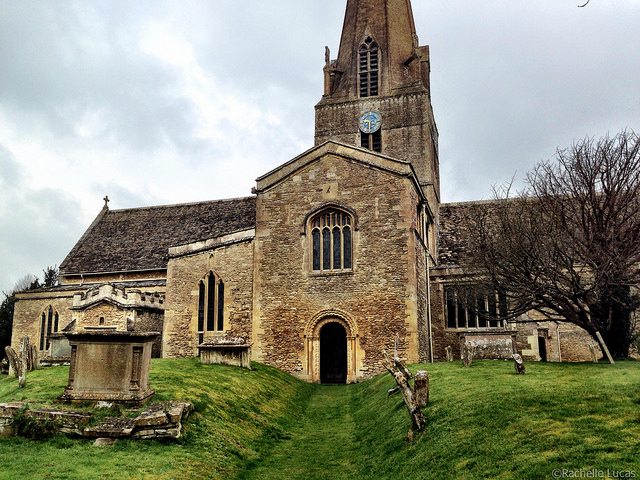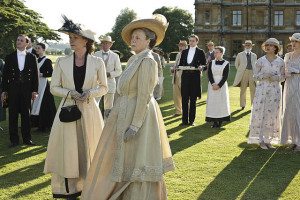Downton Abbey: going downhill?
We left Downton Abbey in 1923- Rose (Lily James) had been presented to the king, Edith (Laura Carmichael) had given birth to her illegitimate daughter and was plotting to secretly raise her, and Mary (Michelle Dockery) was still caught between the affections of Tony Gillingham (Tom Cullen)
and Charles Blake (Julian Ovenden). Downton has long been a fixture of Sunday evenings, and has in its four seasons become a British cultural icon. However, the latest season of Downton Abbey, as the Crawley household move into 1924, has been uneven to say the least.
The most exciting elements of Downton Abbey have always been historical; the varied reactions of the aristocracy to the changes of the early twentieth century were what drew many fans to the show. Yet the show’s forays into historical relevancy this season have been patchy. The introduction of the Russian immigrants to Downton has potential if developed next season, as does the lingering threat of Hitler’s rise that occasionally permeates the narrative. However, the culmination of the war memorial storyline wasn’t satisfying, and there have been inconsistencies in individual characters’ willingness to embrace change- the Earl of Grantham (Hugh Bonneville) was aghast at the prospective of a wireless in Downton in the second episode, but was totally fine with the idea of secretly raising his daughter’s illegitimate child by the end of the season.
A dependency on star quality to get ratings simply isn’t sustainable in the long term.
Downton Abbey has become somewhat reliant on its cameo appearances, enjoyable though they may be. Anna Chancellor’s memorable turn as the predatory Lady Catherine and Richard E. Grant’s lovelorn art historian Simon Bricker have been high points in the series, but have felt like evidence of the show’s desperation. I’m not going to pretend that I’m not excited by the appearances of Matthew Goode and George Clooney in the Christmas Special this year (let’s just say that my attention will not be entirely focused on the plot), but a dependency on star quality to get ratings simply isn’t sustainable in the long term.
Downton Abbey’s problems with its female characters are growing more numerous, particularly regarding romance. Mary’s dalliances with her seemingly never ending line of suitors are taking up more than their fair share of Michelle Dockery’s screen time, time that would be better spent on her effortlessly snarky repartee with her sister. Edith too has been marginalised into a figure of mawkish loneliness, lamenting the loss of her lover Gregson (Charles Edwards) and their infant daughter, without ever showing any real degree of character development. Lady Rose’s hasty marriage to Atticus Aldridge (Matt Barber), as likeable as he is, closes off some of the more interesting avenues that they could have taken her character down. Even the promisingly independent Miss Bunting (Daisy Lewis), the local school teacher, has felt more like a plot device to develop her love interest Tom’s (Allen Leech) character than her own person. Clearly something’s wrong here.
Season five’s biggest problem was the emphasis on the Bates and their troubles after the death of Mr. Green. Anna’s (Joanne Froggatt) rape plot was hugely controversial when it was first introduced, and it wasn’t wholly unsuccessful-writer Julian Fellowes has correctly given Anna’s trauma the attention it deserves, aided by Froggatt’s performance. However, the needless tragedy porn of the Bates family marks a serious decline in Downton’s quality- a repetitive murder storyline culminating in Anna’s arrest that is a lazy attempt at dramatic symmetry to mirror Mr. Bates’ (Brendan Coyle)
arrest in season two. So much misery has been piled upon the two characters that it’s almost hard to feel sorry for them.
That’s not to say there haven’t been some truly engaging moments in season five. The older cast, particularly Penelope Wilton, Jim Carter and of course Maggie Smith, have been consistent scene stealers whenever they are featured. The tender friendship of Ms. Baxter (Raquel Cassidy) and Mr.
Molesley (Kevin Doyle) featured some of the best acting the show has ever featured, and their potential romance is one of the reasons that I still have hope for the show. Thomas Barrow’s (Rob James-Collier) attempt to cure himself of his homosexuality through electroshock treatment was horrifying to watch, and the death of Isis, the Crawley’s beloved family dog, was genuinely heart-breaking.
What season five has lacked more than anything else, therefore, is consistency of quality. The frustrating thing about Downton Abbey is that it’s capable of truly fantastic moments, but fails to deliver this regularly. It’s far from the show it once was, one whose magnetic appeal was that it
shied away from showing the most emotional moments, and instead focused on the micro-expressions and nuances of the actors’ performances. And yes, Downton Abbey has changed with the times it portrays to move away from the closed-off world of 1912, but it has now become so emotionally charged that it is simply unrealistic to watch. All the restraint has left the show, and so watching Downton Abbey is an enjoyable experience, if you can accept it for what it truly is- something frothy, melodramatic, and sensational.


Comments